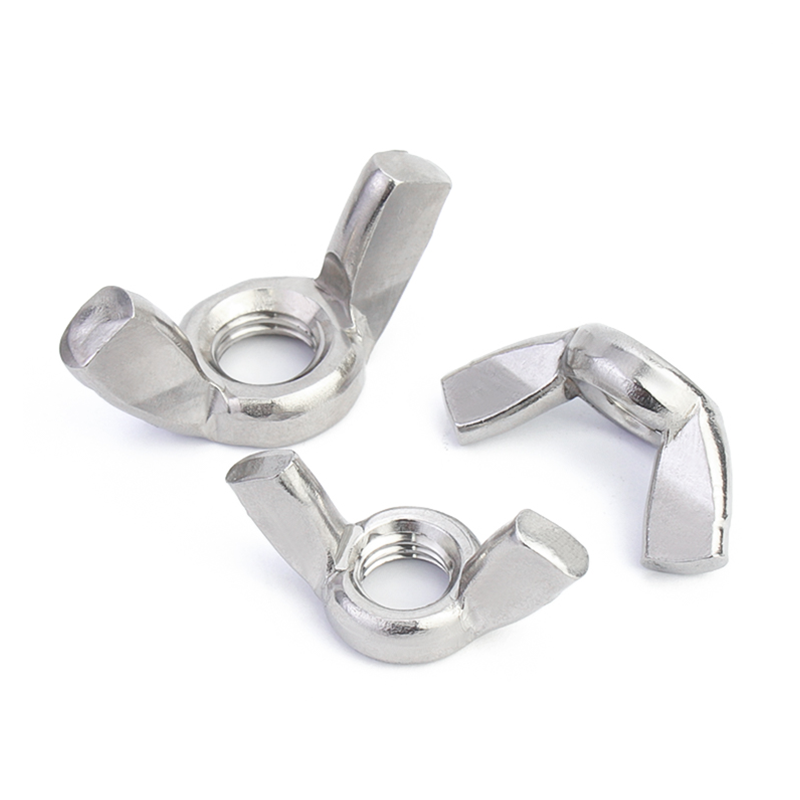

Exploring the Benefits of Fluorocarbon Coated Stud Bolts in Industrial Applications and Corrosion Resistance
Aug . 06, 2024 08:01 Back to list
Exploring the Benefits of Fluorocarbon Coated Stud Bolts in Industrial Applications and Corrosion Resistance
Understanding Fluorocarbon Coated Stud Bolts A Comprehensive Overview
In engineering and manufacturing, the selection of appropriate materials is crucial for ensuring the durability, efficiency, and overall performance of mechanical components. Among these, stud bolts are integral fasteners used to connect two or more components securely. When exposed to corrosive environments or extreme conditions, the materials used for these fasteners must withstand significant challenges. This is where fluorocarbon coated stud bolts come into play, offering a reliable solution that enhances performance and longevity.
What are Stud Bolts?
Stud bolts are threaded rods that provide a bridge between two separate parts, commonly used in various industries such as oil and gas, construction, and manufacturing. Unlike standard bolts, stud bolts are fully threaded along their length, allowing for a more even distribution of load when tightened. This design reduces the risk of uneven stress and potential failure, making them a preferred choice in high-stress applications.
The Role of Coatings in Enhancing Performance
The application of coatings on stud bolts serves multiple purposes, primarily aimed at increasing their resistance to corrosion, wear, and other environmental factors. Fluorocarbon coatings, which are derived from fluoropolymers, provide exceptional protection against aggressive chemicals and extreme temperatures. These coatings not only enhance the mechanical properties of the stud bolts but also offer a low-friction surface that can improve installation efficiency by making it easier to tighten or loosen the bolts.
Advantages of Fluorocarbon Coated Stud Bolts
1. Corrosion Resistance One of the most significant advantages of fluorocarbon coated stud bolts is their exceptional resistance to corrosion. Unlike traditional steel bolts, which may oxidize when exposed to moisture and harsh chemicals, fluorocarbon coatings create a barrier that protects the underlying metal from environmental damage. This feature is vital in industries like oil and gas, where equipment often faces harsh operating conditions.
fluorocarbon coated stud bolt

2. Temperature Tolerance Fluorocarbon coatings can withstand high temperatures, making them suitable for applications ranging from automotive engines to chemical processing plants. This thermal stability ensures that the fasteners maintain their integrity even in extreme conditions where uncoated bolts might fail.
3. Low Friction The smooth surface of fluorocarbon coatings reduces friction during installation and operation. This low-friction attribute allows for easier handling and reduces the risk of damage to components during assembly. Additionally, it minimizes galling and seizing, common issues when using metal-to-metal threads.
4. Chemical Resistance Fluorocarbon coatings exhibit excellent resistance to a variety of chemicals, including acids, bases, and solvents. This property extends the lifespan of the bolts in environments where exposure to potentially harmful substances is inevitable.
5. Enhanced Aesthetics While the primary function of stud bolts is mechanical, their appearance can also play a role in certain applications. Fluorocarbon coatings are available in a variety of colors and finishes, allowing for customization to meet aesthetic requirements without compromising performance.
Applications in Various Industries
Fluorocarbon coated stud bolts are increasingly utilized across various sectors. In the petrochemical industry, for instance, these fasteners are essential for connecting pipes and vessels in corrosive environments. The construction industry benefits from their ability to withstand the wear and tear associated with structural applications. Additionally, in the food processing sector, where hygiene and corrosion resistance are paramount, these coated bolts find a vital role.
Conclusion
In summary, fluorocarbon coated stud bolts represent a significant advancement in fastening technology. Their numerous advantages, including corrosion resistance, temperature tolerance, low friction, and chemical stability, make them an ideal choice for demanding applications. As industries continue to evolve and face new challenges, the adoption of such innovative materials will play a crucial role in enhancing the resilience and performance of mechanical systems worldwide.
Latest news
-
High-Strength Hot Dip Galvanized Bolts - Hebei Longze | Corrosion Resistance, Customization
NewsJul.30,2025
-
Hot Dip Galvanized Bolts-Hebei Longze|Corrosion Resistance&High Strength
NewsJul.30,2025
-
High-Strength Hot-Dip Galvanized Bolts-Hebei Longze|Corrosion Resistance&High Strength
NewsJul.30,2025
-
Hot Dip Galvanized Bolts-Hebei Longze|Corrosion Resistance&High Strength
NewsJul.30,2025
-
Hot Dip Galvanized Bolts - Hebei Longze | Corrosion Resistance, High Strength
NewsJul.30,2025
-
High-Strength Hot Dip Galvanized Bolts-Hebei Longze|Corrosion Resistance, Grade 8.8
NewsJul.30,2025

